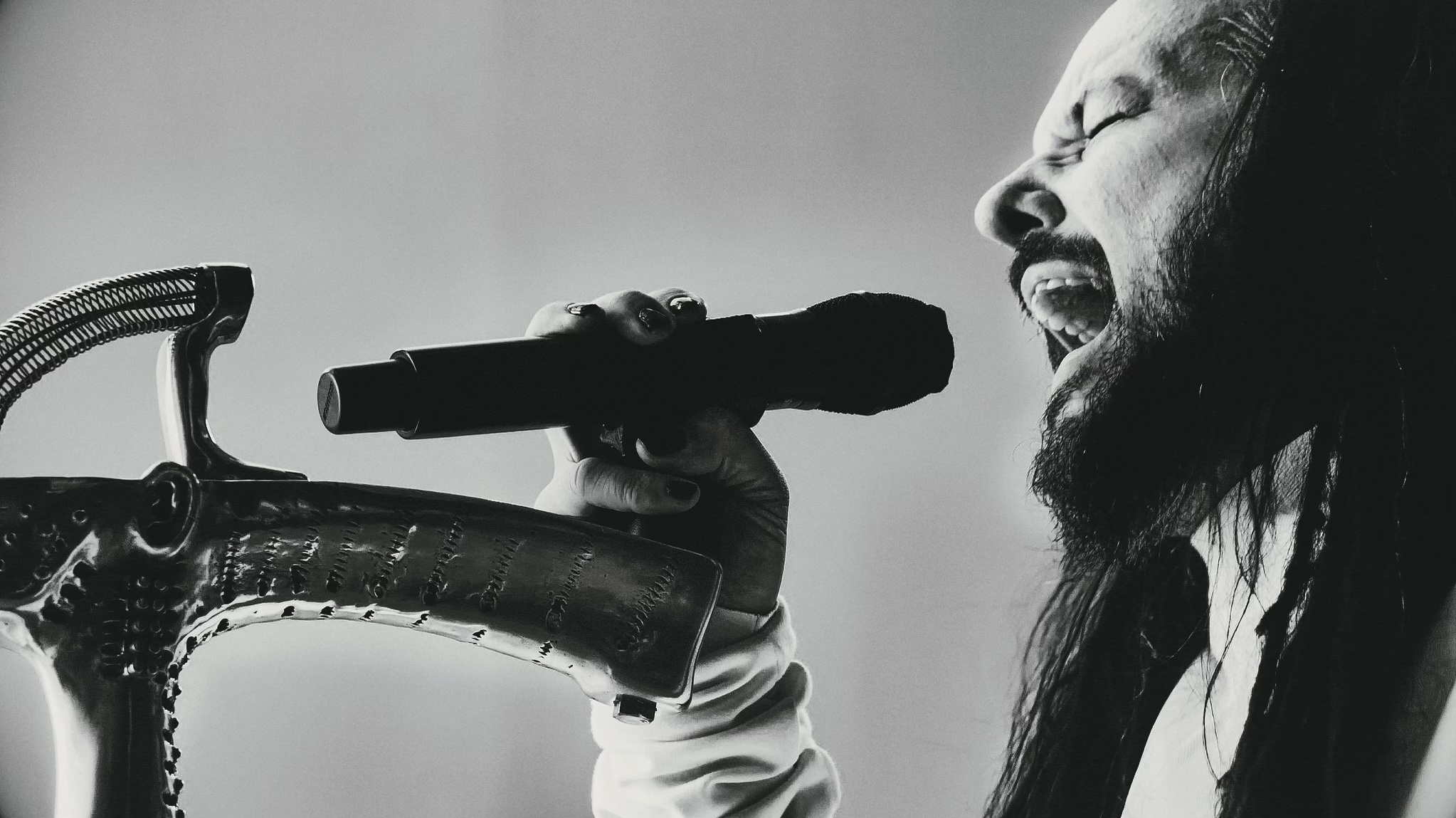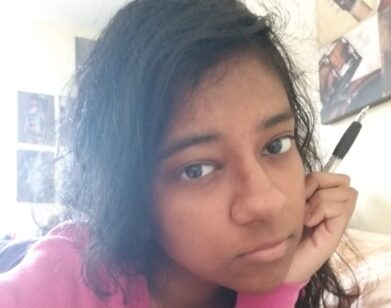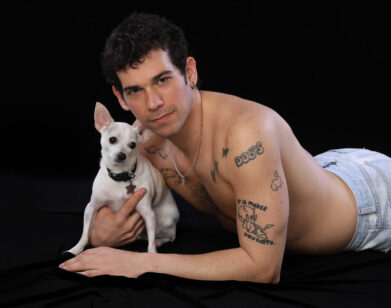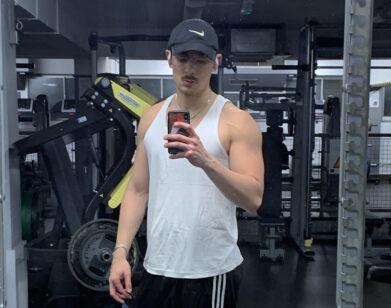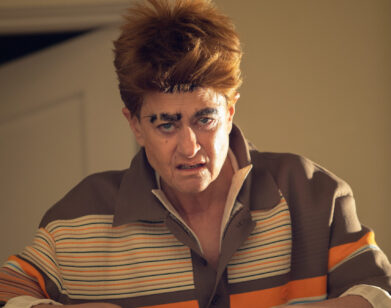IN CONVERSATION
Jonathan Davis and Amy Lee on Juggling Rock Stardom and Parenthood
When you think of Korn, you think of acerbic, earsplitting rock, and in the years since the band’s turn-of-the-century peak, while many of their peers have hung it up, Korn has persevered, releasing album after album of their uncompromising, trademark bangers. That longevity is due in large part to the relentless hunger of their frontman Jonathan Davis, who overcame addiction, mental health issues, and the pitfalls of fame to arrive at a place of serenity. Along the way, he inspired a generation of musicians, one of whom is Amy Lee, lead singer of the goth-metal band Evanescence. Beginning next week, two bands head out on their first tour together since 2007, an 18-city road show celebrating their reunion and incomparable contributions to modern rock. Before they hit the road, Davis and Lee got together for a heart to heart on producing, parenting, and memorializing the fateful night they met. – CAITLIN LENT
–––
AMY LEE: What’s going on?
JONATHAN DAVIS: Nothing. I’ve been sitting at home. We’ve been on tour, having fun and playing. COVID World Tour.
LEE: It’s good to be back after that.
DAVIS: So fun just to get back on stage, except for catching COVID. It was scary, but I got through it.
LEE: I did right before Christmas. We were in the middle of our [tour] and then we had a bunch of people who got it. I didn’t think I was one of them, but then after we all went home I was like, “Oh yeah, me too. I guess I’m not going to my parents right now.” But being back on stage after being off stage is such a drug.
DAVIS: It’s a good drug. But for me, I was having fun, then I got it. I had to sit in a chair for the rest of the tour. I had no energy whatsoever. But I could still write.
LEE: I feel like we’re getting to another place. But I’m excited about the fall. It’s been a minute. We haven’t had a full tour in a long time.
DAVIS: When was the last one?
LEE: ‘07, right?
DAVIS: I think it was.
LEE: We had Troy [McLawhorn] which was a big new moment, and then we were with you guys. It was such a great tour. I love when we get to play with you guys. We play with all kinds of people. And it’s always fun. We’ll go out for a couple songs, but then it’s like, “Okay, pack it up, we’re done. I want to go watch Korn now. Have a nice night.” Like, I really enjoy watching your whole set. I’ve been your fan before I knew you. Your live show is really special. It’s got to be something that can only come from doing it for so long, and becoming so tight.
DAVIS: I love it. I love to always see you over there, rocking out. I’m always watching. I love watching you play, like when you did that Solace cover. I was blown away. I never heard that song interpreted in that way in such a beautiful way. And I’m an asshole. I give props to very, very few people.
LEE: That makes props mean so much more.
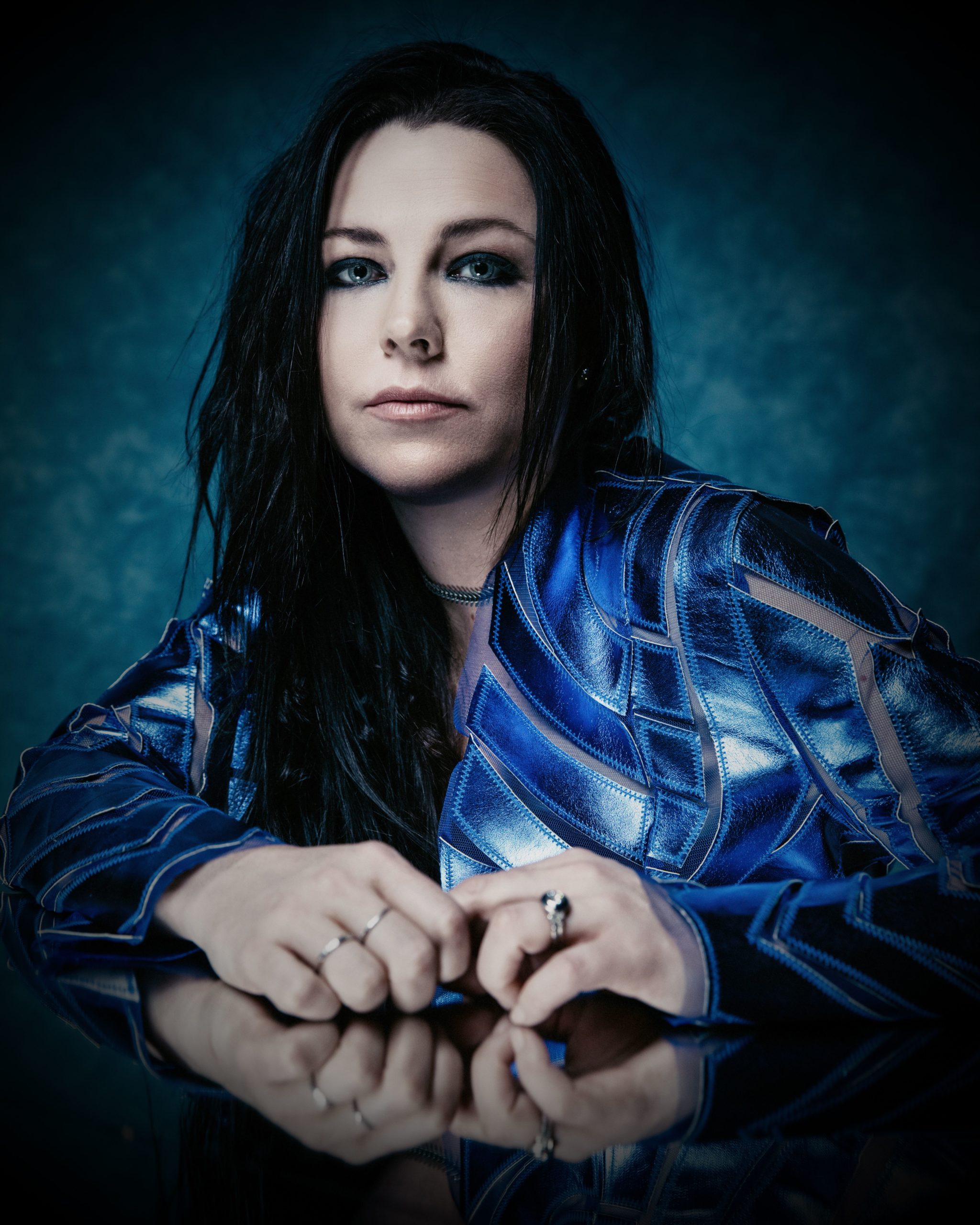
Image courtesy of Eric Ryan Anderson.
DAVIS: I’m totally into talent. It seems like music has moved on to a place where it doesn’t matter about talent. It’s about how talented the engineer is at faking everything.
LEE: And it has become so much about personalities too, right? I feel like that’s like the new generation. It’s more about a personality than the actual song. I’ve seen their Instagram but like, what is their music? What does that mean to you? But I don’t want to be the old person complaining…
DAVIS: I know. I am old now.
LEE: We’re purists. We’re allowed to say it.
DAVIS: In the long run, it’s cool because everybody’s enjoying music. That’s all that matters.
LEE: There’s still a lot of good stuff out there. The world of rock, especially heavy rock, has just grown and expanded a whole bunch. And I am really excited about what is happening with our tour with all the different openers instead of one. It ended up being this rad combination of cool things.
DAVIS: It’s fun for me because we get to watch all the bands opening. It’s gonna be sick.
LEE: I like your new album Requiem. I was listening to it, really focusing on it today. And speaking of melodies, I feel like you’re diving deeper into caring more about the melody.
DAVIS: The situation I was going through for a lot of my life didn’t give me the opportunity to actually be in the studio when I was supposed to be in the studio. I was always worried about taking care of my kids. I had all this crazy insanity going on. I’m gonna take my time. We’re in a pandemic and I don’t know when I’m going to tour again and again all the time in the world. So [for Requiem] I really got hardcore into good production. It’s all done on analog tape. I sat there with five microphones. And I didn’t double one vocal on the same microphone. And every track did 24, sometimes 30 vocal tracks. It was tedious and it sucked. But the end product was amazing.
LEE: You’re totally speaking my language. That is what I do. That is what I live for. If we’re gonna do it, we need a triple and what goes over here and what was over here and the third one like underneath harmonies in this place.
DAVIS: I have two mics I use for my main vocals. Yeah, we have three or four for all the harmonies. And it’s a lot but when you’re doubling and tripling it makes such a difference.
LEE: I love that. I have done that sometimes, but not always. You worked with Nick Linux, right?
DAVIS: Yea, the band went to Nashville. And I wasn’t into doing that. So I did all my stuff here.
LEE: I totally get that. Do you do it with just you and an engineer?
DAVIS: Yeah, I just got to that point. I’m open to doing it with other people now. I’m getting comfortable.
LEE: We did our last album with Nick. We’ve done the last two Evanescence albums with him and I love working with him. He’s a really good vocal producer. I have a vision for what I want. And it takes a lot of trust with somebody to like, be like, “Okay, I want to hear your ideas.” Nick and I have this cool dynamic where we’ve really developed a trust. And the trust comes from the fact that he will be critical of me the way that I’m critical of me. What I hate more than anything is if somebody just [goes] “Sounds great.” I want to hear the little tiny thing now. I don’t want to hear it later, like in my car in a year, and be like dammit, “Why didn’t they just push me?”’ Both albums we made together, he’s made me cry. Just one time, just a tiny bit. He just pushes me to the tip of my ability, where I’m frustrated and determined and squeak a little. And we get there and it’s like, “You pushed me past that point where I almost lost my mind. And I did something I didn’t know I could do.”
DAVIS: I don’t remember when we met.
LEE: I do. I’ll start. You were very kind. I first heard you when I was in high school. When I finally met you, we played some festival together, like our first year touring. I was like, “Oh my god, I have to at least say hi.” And you guys are big rock stars. So you’re in your dressing room, you have security and stuff. I didn’t have security then. I was shy. I’m not as much anymore but especially back then, like being young and a girl and just new to it all. The thing that would make me cringe the most would be trying to be like, “Hey, I’m the girl from Evanescence. Do you know who I am?” Like, I would never do that. So I ended up a lot of times, especially in the early days, just not actually even saying hi to people because I was embarrassed or afraid to come off like that. So I’d just walk away. But with you, I was like, “I can’t let this moment pass me by.” So I wrote you a letter. I wrote you a note and folded it like in high school. And I put it in your dressing room. Like either taped to the dressing room door or a slit under the door and ran away. And you found me later, like a bit later, it was after the show. You’re like, “Hey, come here. You can’t just leave a note and walk off.” I was like, “Okay, well, I love you guys. And it’s an honor to play with you.” Then we had our tour together. And you know, I always kind of feel like we have been around each other enough that we really have had a bit of history. And my career in music had been kind of intertwined with you guys, weaving in and out and in between.
DAVIS: At that time, we were so out of our minds. I mean, I had just gotten sober at that time, so I kind of remember what you’re talking about, but it gets cloudy. But I remember hearing you guys and going “Wow, this is really cool.”
LEE: You don’t have to lie, Jonathan. It wasn’t metal enough.
DAVIS: Had nothing to do with that. I just loved your voice. There’s only a couple voices I like. Yours and Lisa Gerrard.
LEE: Cool. Didn’t you guys collaborate one time?
DAVIS: No, I’ve always wanted to. I love that kind of music. The music I listen to is really mellow stuff from the 30s and 40s. That’s all we listen to. I love Cab Calloway, The Andrews Sisters and all that really old-school stuff because it’s real.
LEE: I have two sisters. And we did like a kid’s family album when I was a new mom. And we totally took three of the songs that way. Old school. Like Andrews Sisters’ stuff. It was so much fun. Check that out, it’s right up your alley.
DAVIS: How was that, when you became a mom?
LEE: It was amazing. It changed my life. I always had it in my head that I wanted to wait, because I needed to make sure I was ready to maybe say goodbye to everything. I was going to cross over into being a new person and just have to focus on being a mom and not be able to have my music career anymore. When you get to a place where you are spiritually, emotionally, mentally prepared to let it go, that is when you’re able to fully embrace it, and it comes to you full force. I had Jack, he’s gonna be eight this year. I’m beside myself about this fact. He’s amazing. He’s so smart. He’s into black holes. When I was pregnant, I got really inspired. Like, suddenly, I was changing. It’s wild. It’s supernatural. I just started having all these creative ideas. I was working on a trippy film score and a weird twisted album until the week he was born. We finished it that week. And then after he was born I just had all these ideas. I had a whole new part of my heart that wasn’t awake before. Suddenly, I was like, “I have so much to say, I have so much to talk about. I want to make music.” It became a really beautiful thing, like a reinvigoration of wanting to do music and then eventually really wanting to do the band again.
DAVIS: It’s so rad. When I first had Nathan [Davis], I just turned 26 and 27. It totally switched me from loving my band to “I need to do music because I’m responsible for this little human.”
LEE: Like, who’s gonna pay for all this shit?
DAVIS: I had Zeppelin [Davis] with all this stuff going on, and looking at those little human faces and being a Dad made it just all worth it. You said your heart opened up, for me it was the same thing. It just made me want to go and say more things, to do more things. Everything is for those little guys. And it’s just amazing. Nate’s on tour right now. He DJs all over the place. He gets up on stage. He looks like a Japanese schoolgirl. He wears a dress. All this stuff is dope. This shit’s come full circle. This is so beautiful. It’s so strange. It’s so cool.

